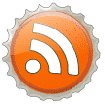
A resume is an important communication tool from you to principals. It lets them know, in a brief written form, about your qualifications and why they should pursue you as a candidate. A resume should be more than just a listing of personal data and work experiences. It should be a sales brochure which markets you as a great teacher!
There is no one right way to write a resume. Each resume is as individual as the person who writes it. There are, however, generally accepted ways of getting information across to potential employers. Use the following information as a guideline to draft your teacher’s resume. Then you can have your resume reviewed and receive feedback.
Required Elements of a Resume
Identification: Include your name, address, phone, and email address (your email address should be professional, not cute). If you have a current and permanent address, list both. Your name should be in the biggest print on the page, three or four times bigger than the other print.
Certification: List your certification and any endorsements, and the date. “Illinois Initial Elementary Certificate, expected July 2001. Endorsement expected in Middle Grade Language Arts.”
Education: List your college degree(s) in reverse chronological order, including school name, city, major(s), minor(s), and date(s) of graduation. If you haven’t yet graduated, list the date you plan to graduate. If it’s more than a year from now, indicate that the degree is “anticipated June 2001.” If your G.P.A. is over 3.0, you may want to include that as well.
Teaching Experience: This is the most important part! This is the place where you can really sell yourself to potential employers as the next great teacher at their school! Use the list of action verbs located in this packet. Write down everything which could help sell you as a teacher. Include job title, where you did this activity, and when (Student Teacher, Sam Houston High School, Spring 2001.)
Related Experience: This is where you list paid or unpaid work which gave you experiences which will help you be a better teacher, camp counselor, tutor, etc.
Optional Elements
The rest of your resume can include any of the following elements. Again, choose those which sell you as a
teacher the best.
Work Experience: This element is optional because your teaching experience is what interests principals and other hiring authorities the most. List these jobs in reverse chronological order. Highlight those aspects of the job which are teaching related. (Training other employees is of more interest to principals than sales.)
Honors and Activities: If you have some impressive honors (Dean’s list, Phi Delta Kappa, any scholarships or achievement awards), or activities which relate to teaching, you can list them.
Special Skills: Fluency or proficiency in foreign languages, using computers to enhance instruction, etc.
Professional Preparation: Special workshops, seminars, etc. you’ve participated in, especially those which can be quantified (e.g., “Trained Great Books Leader”).
Professional Memberships: List those professional associations to which you belong. Include any leadership positions or committee memberships. (e.g., National Council of Teachers of English) Any other achievements, training or skills which help sell your qualifications. If you’re not sure about something, ask yourself, “If I were a principal, what skill or experience would I want to read about?” Do not use passive sentences (e.g., “I was responsible for…”). Start each line with an action verb (“incorporated math learning centers into curriculum”). Do not use personal pronouns. Be concise, but make space to list most of your teaching related experience, especially if you are a beginning teacher.
Resume Mechanics
Your resume should look great. It communicates as much about you as the clothing you wear to an interview. Take the time and money to make a first class presentation.
- Using a computer and a laser printer is highly recommended. You get top quality printing and can adapt your resume and cover letter quickly and easily for each employer.
- Stick to one page unless you have several years of teaching experience. Even if you have many years in the work force, condense to one page, focusing on teaching.
- Use a good paper stock. Nothing too flashy: white, ivory, or light gray. Get extra paper for matching cover letters. Consider using an 8 1/2″ x 11″ envelope so your resume reaches the employer in immaculate condition.
- Use bolding, underlining, or italicizing to highlight those words or phases you want to stand out. Don’t overdo it, though.
- Use perfect grammar, spelling, and punctuation. Make good use of action verbs (list is attached). Have several people proofread your resume.
- Make it visually attractive: white space for the eye to rest; no marks, erasures, etc. Use a font which is easy to read.
source: Teacher Resume

